Modern SEO involves meeting users at the point of their needs.
It’s not about ranking #1 – as wonderful as that might seem – but rather, it’s about providing enormous value so that when people visit your page, they’ll stick around instead of bouncing off.
Most likely, you’ve got a lot of competition for search engine and user attention. Millions of pieces of content are published every day, the majority being written content.
So, you can either stand out from the crowd, with valuable content or get buried with mediocre content.
There’s no middle ground.
Head keywords (e.g., guitar lessons) have huge search volumes, but long tail keywords (e.g., best guitar lessons for beginners) will help you rank higher in the Google results because they’re less competitive.
Top brands with huge marketing budgets don’t go after long-tail keywords because the search volumes are relatively small.
But, the traffic that comes to you will be highly motivated because they’ve specified exactly where they are (beginners) and what they want (to take guitar lessons).
In short, long-tail keywords drive targeted traffic and should be an integral part of your SEO strategy.
To illustrate this further, long-tail keywords convert 2.5X better than their associated head keywords.
The competition is increasingly using specialized keyword research tools. And, the keywords you once thought were hidden have now been made available to everyone.
Google wants everybody to have access to that research. That’s why Google Keyword Planner is 100% free.
However, in this article I want to show you how to generate long-tail keywords using two different tools: Quora and Google Trends.
Quora Keywords Research
There are lots of Q&A sites, but Quora is the most popular. In fact, as of June of 2019, it’s the 80th biggest site, by visitor volume, in the world overall.
No matter what topic you plan to cover, you’ll find relevant questions and the corresponding answers from thought leaders in that field.
Quora has millions of members and you may not generate thousands of visitors from there. But, if your site is just starting out, an extra 100 – 200 visitors from Quora can make a big difference to you.
Quora is great for long-tail keyword research. Throughout this section, I’ll show you how to use it for that purpose.
Understand How Quora Works
In order to enjoy the full benefits of Quora, you’ll need to sign up – it’s free. When you log into your account, one of the first things you’ll notice is the link to “Top Stories For You.”
These are the questions that are highlighted for you as a result of your settings and preferences. During registration, you indicated the topics that you want to answer questions about.
That area is referred to as “Knows About.” There, you can describe your areas of expertise.
As an example, I’m interested in topics like investment, blogging, internet marketing, and the like. You’ll notice how relevant my top stories are:
When you click on a particular question, you’ll see when it was last asked and the number of views it’s generated.
Before we get into the keyword research process, one other important section of Quora that you should become familiar with is the list of “Related Questions.”
When you click on a particular question, you’ll see something similar to this on the right side:
These “Related Questions” are a keyword goldmine. If you’re smart enough, you can generate a handful of long-tail keywords that most people hardly see, all from this section alone.
That said, let’s quickly dive deeper into Quora keyword research properly. Specifically, we’re going to find out how to turn every Quora question into profitable long tail keywords.
1). Treat questions as keywords: What role do you think questions play in search engines? You might never have given it much thought, but in reality, questions are actually long-tail keywords.
This might come as a surprise because most keywords don’t end in a question mark. Here are typical examples of keywords that were used in Google searches:
On the surface, these keywords don’t look like questions.
However, when you understand the intent behind any keyword, you get some insight into what a search term actually represents.
That’s where Quora comes in. Still using the above keywords as an example, let’s see some of the questions related to them.
Quora is user-friendly. It helps you understand the purpose of a particular keyword. The downside to head keywords (e.g., custom coffee mugs) is that you can’t tell what the searcher is looking for.
You could make any one of several assumptions:
- They want to buy custom coffee mugs
- They want to get the latest information about coffee mugs
- They want to import coffee mugs as a wholesaler
But, that list of assumed answers goes on and on…
That’s also one of the main reasons why you should treat every question on Quora as a long-tail keyword.
Let’s consider the question below:
It’s obvious that the person asking this question on Quora is looking for insights and possibly success stories about becoming a millionaire or achieving his financial goals.
This question isn’t from some hit-and-run guy who is trying to play around with grammar. It’s a real question from a real person who believes that he has a real problem.
SEO success, today, hinges on user optimization – that is, making your content useful, timely, unique and relevant to a particular group of people. It’s got nothing to do with trying to rank for a certain keyword or key phrases.
It’s about making an impact and gaining authority. Sure, you could employ black hat SEO, manipulate your content for search engine results and get people onto your page. But, once they’re there, they’ll still ignore your content if it’s utterly worthless.
So, before we move on, have a different mindset about Quora and its questions. They’re not just random questions from random people. They represent real keywords– especially, long-tail keywords–and have great potential.
2). Reverse-engineer questions and look for related long-tail keywords: Quora is simply spectacular in its mode of operation. It all boils down to two simple steps:
- Anyone can ask and answer questions …
- The community votes on which answers are most helpful.
That makes it a robust platform to capitalize on questions, and even provide answers to topics you’re knowledgeable about.
For this to happen, you’ll use a concept known as “reverse-engineering.”
Reverse-engineering is frequently used in computer and software development. It simply means taking apart an object and examining it to see how it works. This is typically done in order to improve on it or replicate its processes on other objects.
In the context of search engine optimization, reverse-engineering entails leveraging questions and generating long-tail keyword variations through them.
You can create a useful title from questions. Here’s how to do it:
i). Step one: Search for relevant questions on Quora. You can input a word or two (e.g., lose weight) into the search box..
From the results, you can create content. For example, the question “What are the most common weight loss myths?” can be transformed into these titles:
- 7 Most Common Weight Loss Myths You Should Avoid
- How to Recognize a Common Weight Loss Myth When You See One
- 13 Common Weight Loss Myths From the Lazy Guys
To truly enjoy the benefits of organic traffic and rankings, you need to take a Quora question and dig into it more deeply to find additional long tail keywords for your article.
Copy and paste one of the Quora questions (i.e., why is it so hard to lose weight?) into Google Keyword Planner. Then, click on the “Get ideas” button. Here are the related keywords for our example:
These are the long-tail keywords that you might not otherwise find in Google Keyword Planner:
- why is it so hard for me to lose weight
- why is losing weight so hard
- finding it hard to lose weight
Armed with these profitable long tail keyword ideas, you can create a clickable and keyword-rich title for your content. For example:
- Question Answered: Why Is It So Hard for Me to Lose Weight?
- 13 Reasons Why Losing Weight is So Hard for Most People
- Are You Finding It Hard to Lose Weight? 5 Simple Things You Can Do
To avoid over-optimizing your content for exact match keyword phrases, you should use Latent Semantic Indexing (LSI).
Don’t be confused by that phrase – LSI simply refers to the keywords’ synonyms. The use of LSI will ensure that your content reads naturally and also helps Google understand the people you’re targeting.
It’s important to sprinkle in LSI terms throughout your content. Here’s why: If you’re writing about Apple, Google doesn’t know which particular Apple (or apple) you’re referring to.
- Are you referring to Apple, the Palo Alto company?
- Or apple, the fruit?
- Or Apple’s products, like iPhone, iPad, iMac, iOS, etc.?
Let’s say that you’re writing about Apple products. To make it easier for Google and users to understand what you’re referring to, you should include the product names and types – e.g., Apple iPad, Apple iPhone, Apple apps, etc.
Additionally, using LSI keywords when creating your content can protect you against over-optimizing for an exact match keyword.
If you’re referring to apple the fruit, then mentioning other fruits like strawberries, pineapple, and bananas can help the search engine giant rank your content for fruit related keywords.
LSI keywords also help make your content interesting, keyword-rich and timely.
To find these LSI keywords, simply copy and paste a particular Quora question into the Google search box. Click on the search button. Then, scroll down to the bottom and you’ll find the words used in related searches:
Google Trends Keyword Research
Keywords are the lifeblood of search. Google is not about to ditch the value attached to keywords.
But, user intent is actually a better way to understand the role of keywords in any piece of content – not to manipulate search engine rankings, but to add value for your users.
The right keywords can skyrocket your search visibility, traction, sales, and revenue. If you want to scale your keyword research, there’s no better alternative than utilizing Google’s own tools – specifically, Google Trends.
As the term implies, Google Trends shows you high-volume trending search terms in your niche.
The keyword tool also reveals the growth rate of a particular search term before it shows up in the Keyword Planner or other tools like Ubersuggest.
Bear in mind that most keyword suggestion tools mine Google’s keyword database. They connect through the API. When the search engine giant updates its keyword database, these privately-owned tools are also updated.
Google Trends helps you to eliminate the guesswork.
Instead of assuming that a particular keyword will continue to rank and blindly investing in it, you’ll discover the trend over the last 6 months. This, too, will help you generate long-tail keywords.
Before you invest $1,000, or more, in your SEO campaign, it’s always good to know whether your keyword–long tail or short tail–is growing or shrinking in popularity.
To get this done, follow these steps:
i). First step: Go to Google Trends. On the homepage, enter the primary long-tail keyword (e.g., guitar lessons) that you want to rank for or create content about. Then hit your “enter” key.
ii). Second step: Analyze your keyword trend. This is where you determine whether the long-tail keyword you want to target is gaining popularity or losing it.
You can see that the term “guitar lessons” had a spike in popularity toward the end of 2018 but dropped off and flattened out in early 2019.
Of course, if you check Ubersuggest, you might see a huge search volume for such long-tail keywords. But, Google Trends gives us a fresher, more current take than keyword tools.
On the other hand, a popular term, such as “content marketing,” still enjoys a steady growth rate that started WAY back in 2004 – a time when both B2B and B2C companies began to embrace it.
Google Trends gives you deeper insight into what people want at a particular time. You can always compare past trends to the current ones and strike a balance.
During the Halloween season, costumes trend incredibly high. The reason isn’t hard to guess – people want to buy costumes.
Having said that, let me show you some quick ways to generate long tail keywords using Google Trends:
1). Analyze the Google Trends Related Stories for insights: The first thing that you’ll want to do with Google Trends when looking for long tail opportunities is to analyze the related stories.
Simply enter the long-tail keyword you want to measure and analyze its popularity.
First, the long-tail keyword “how to paint a car” has a relatively stable growth rate. It picked up significantly in 2011 and that trend has continued.
Next, scroll down the bottom and you’ll see the “Related Stories:”
The next thing you should do is copy one of the search terms from the “Related Stories” list and plug it into Keywordtool.io.
Some of the search terms listed under queries may be hidden in the Google Keyword Planner. Perhaps you don’t know how to access them.
Instead of trying to find them on the Keyword Planner, let’s research with Ubersuggest instead. Enter one of the long tail terms and click on the search icon on the right:
Here are the related long tail keywords that you can create content around:
As you can see from the screenshot above, there are several long-tail keywords already generated for your “car painting” business.
If you have a news-related site, you can easily extract Google Trends data from the “Stories trending now” section. Simply scroll down the Google Trends homepage and you’ll find this section highlighting hot stories from the past 24 hours.
Of course, the items in this section aren’t static. They’ll change. When you check it in another 2 hours, you’ll very possibly find entirely different stories there.
You might even find one of those stories is about your topic. Who knows? The point is that research will help you generate long tail keywords–and thus drive more targeted traffic.
Conclusion
Keyword research isn’t for lazy marketers looking for a quick buck. It might look simple, but it’s a process that can make or break your business.
You can use Ubersuggest to find long tail keywords, but you’ll be racing against your competition.
Or, you can use Quora and Google Trends to generate low-hanging fruit that’s ripe for your picking. You can use these research tools to create irresistible titles and content that will actually drive organic traffic–and become a long tail pro while you’re at it.
Which other keyword tool works for generating profitable long-tail keywords?

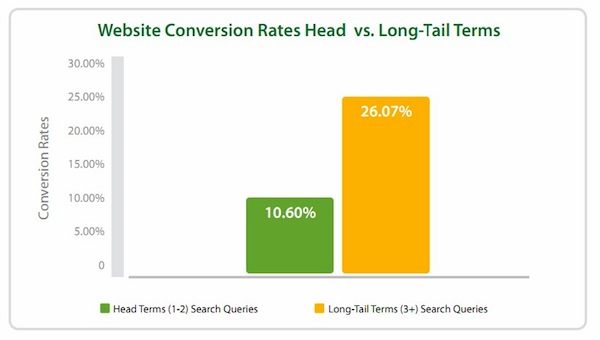





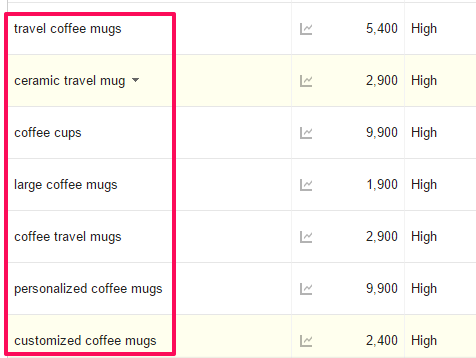


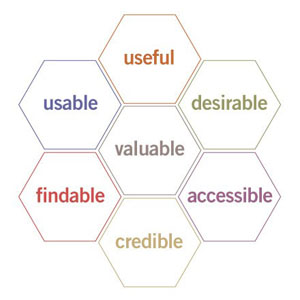
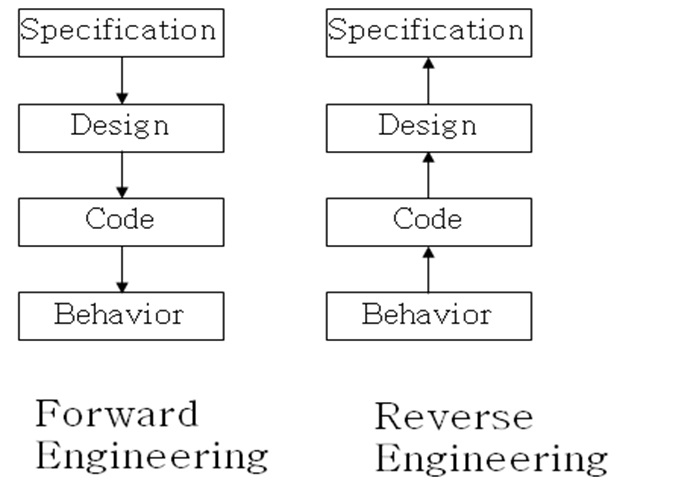

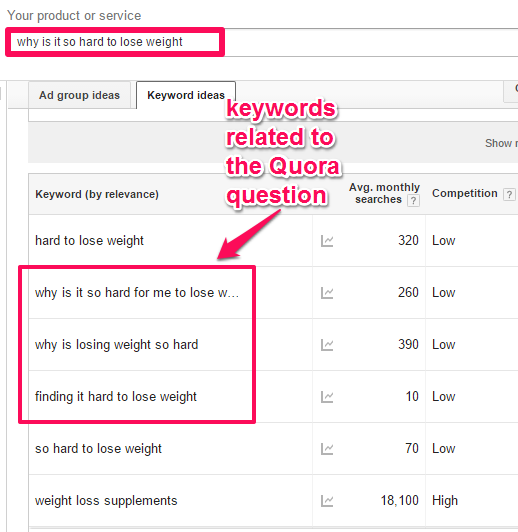






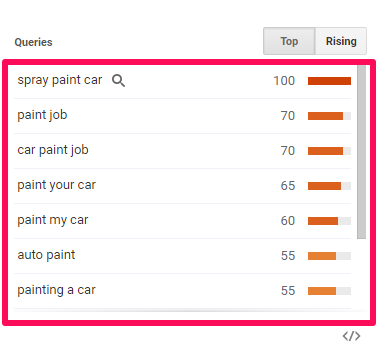


Comments (83)